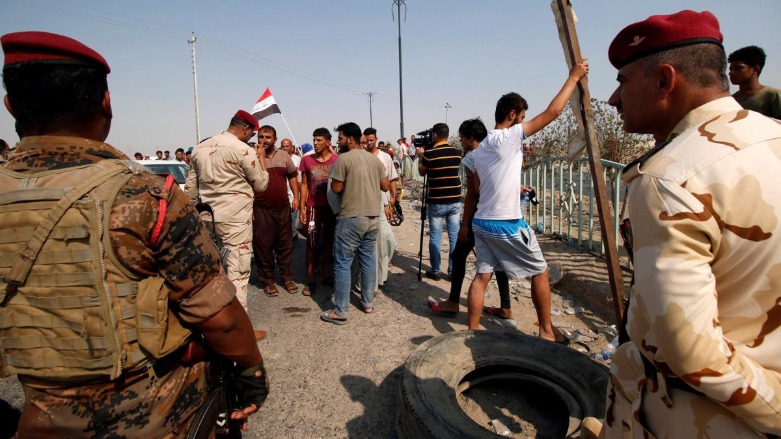Protesters shut down Iraq's main seaport

ERBIL (Kurdistan 24) – Protesters blocking the entrance of Iraq’s main seaport in Basra caused all operations to come to a halt on Thursday. This comes amid calls by the head of Iraq's top vote-getting coalition for newly-sworn-in lawmakers to resume their inaugural session to “develop comprehensive and immediate solutions” to the crisis.
Staff members of Umm Qasr port—through which much of the country’s goods and foodstuffs are imported and oil exported—said that all work has ceased since demonstrators prevented workers and trucks from moving in and out of the complex, Reuters reported.
Summer protests over chronic shortages in basic services and widespread governmental corruption reheated after reports that over six-thousand people in the oil-rich city had been hospitalized after drinking impure water with a high salinity content. The local government has yet to rectify the problem or even state its plans for doing so.
Since the start of the month, at least nine have been killed and over 100 wounded in clashes between security forces and protesters.
Also on Thursday, Shia cleric and head of the Sairoon Coalition Muqtada al-Sadr said that parliament should meet no later than Sunday, demanding that Prime Minister Haider al-Abadi and a number of ministers appear in person to “develop comprehensive and immediate solutions” to the ongoing crisis in Basra.
This came in response to the temporary speaker's suspension of the first session until Sep. 15 to elect the body's leadership, something the Constitution of Iraq mandates is done in that first meeting.
In a statement released immediately after Sadr’s, Abadi responded that he was willing to attend the session.
Editing by John J. Catherine
